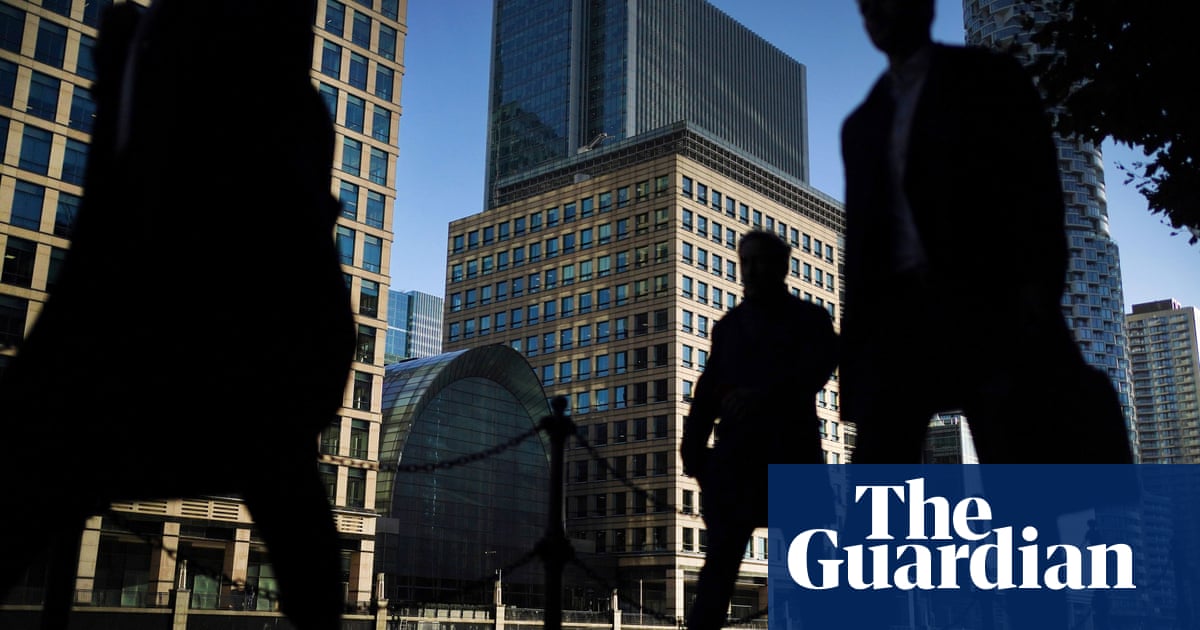
As the pandemic struck wealthy economies in early 2020, workers (in white-collar jobs, at least) found themselves carrying out their duties from home. Now that vaccination programmes are continuing apace, more companies are grappling with how – and whether – to end the great enforced experiment in home working.
The answer is far from settled, with Apple telling its global workforce on Friday that they will not return to its corporate offices until January at the earliest, amid concern over the spread of new coronavirus variants. The tech company’s original plan to bring staff back in on Mondays, Tuesdays and Thursdays in a hybrid home-working pattern had already been delayed from early September to October.
Apple is far from alone in delaying the return, with health concerns unsurprisingly emerging as the governing factor. The UK government removed all guidance for people to work from home where possible on 19 July, but with infections remaining high, many companies have yet to bring all their workers back to the office.
In the US, prominent tech companies such as Amazon, Facebook, Lyft, Wall Street’s Wells Fargo and BlackRock are among those who this month delayed their return to the office until 2022 as cases of the more infectious Delta variant rise.
Yet many other US businesses have carried on as normal for months. Even within some companies there are inconsistencies: some Facebook contractors have complained that they have been forced back to offices even as permanent employees stay at home.
When businesses do return, one of the most significant frictions is proving to be vaccination status. The 2.1 million employees in US central government offices must now disclose their vaccination status on forms brought in this month. Joe Biden personally announced that those who have not been jabbed will be made to wear masks and socially distance from colleagues, making their personal decisions very publicly visible.
However, individual states are taking wildly different approaches, reflecting political divisions. Democrat-controlled California last week mandated all teachers be vaccinated or be subjected to weekly testing. By contrast, Republican-dominated Florida, Texas, and Montana have all tried to ban vaccination mandates, with varying levels of success. The Texas governor, Greg Abbott, who himself caught Covid-19 this week, has appealed to the state’s supreme court after lower courts ruled against his ban on government entities or private companies that receive state funds requiring the wearing of masks or proof of vaccination.
Yet many American companies are taking a harder line on employees being inoculated than elsewhere in the world, in part due to federal guidance, updated in May, that explicitly allows employers to demand it. Unvaccinated staff are banned from buildings of the investment banks Citigroup, Jefferies and Morgan Stanley, while at JP Morgan and Deutsche Bank they must take regular Covid-19 tests.
The aviation industry is among the keenest to exude an aura of Covid safety: Australia’s Qantas and Hong Kong’s Cathay Pacific have both mandated vaccines for some staff.
In Europe, some employment lawyers believe vaccine mandates from individual employers are unlikely to be legal, although the UK and France have brought in vaccine requirements for care and healthcare workers.
France, Italy and Germany have all introduced controversial passes, which show vaccination or test status, that are required for entry to venues such as restaurants, cafes and cinemas. In Bordeaux, a trial is under way in tourist areas to issue bracelets for the vaccinated, so they can easily demonstrate their status to enter bars and restaurants. Some French employees will have to show their pass at work, as will Italian teachers.
For all the efforts to bring workers back safely, the longest battle may be over staff who want to continue working from home at least some of the time. The UK chancellor, Rishi Sunak, has repeatedly said that working from home is damaging to younger workers’ prospects.
The vacuum cleaner tycoon Sir James Dyson this week cast the return to the office as essential to the British economy’s competitiveness. He wrote in the Telegraph that Boris Johnson should restore companies’ right to determine where employees work – however unpopular.
Yet there are convincing signs that the pandemic has prompted a permanent shift to home or hybrid working. A survey of 120 British companies shared with the Guardian by the insurance broker Willis Towers Watson suggests 41% of employers expect to use hybrid working in two years’ time, compared with 10% two years ago. In the US, a May survey of 500 top executives by McKinsey found that 48% expected workers to spend only two or three days in the office a week, compared with 8% before the pandemic.
Some employers are also enthusiastic, spying an opportunity to cut costs. In the UK an anonymous cabinet minister told the Daily Mail that civil servants should be forced to take pay cuts if they work from home. Removing the “London weighting” – extra pay to cover the higher costs in the capital – was one mooted option.
However, the Cabinet Office minister, Michael Gove, called the comments “unhelpful” and employment lawyers were quick to point out that UK employers would almost certainly face cases for constructive dismissal if they tried to unilaterally cut pay set in a contract. Melanie Stancliffe, an employment law partner at Cripps Pemberton Greenish, said she had not seen any employers trying to cut pay so far, even among those thinking about lowering costs.
Peter Cheese, the chief executive of the UK’s Chartered Institute of Personnel and Development, suggested that employers should embrace new ways of working. Companies have the chance to shift their “very traditional paradigms of work”, while at the same time making themselves more attractive to potential employees, he said. “I genuinely think this is a once-in-several-generations opportunity to change working practices that haven’t changed since the industrial era.”












